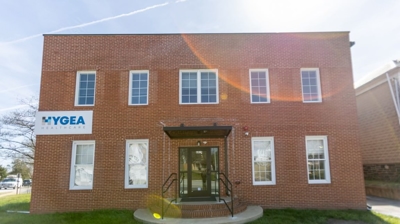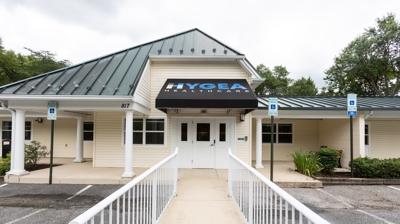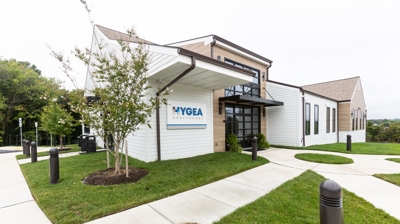Mental Health and Addiction: The Connection
The relationship between mental health disorders and substance use is complex and bidirectional. According to current research and clinical practice, these conditions are now recognized as co-occurring disorders rather than dual diagnosis. [1] This guide explores the intricate connections between mental health and addiction, providing insights into integrated treatment approaches.
Understanding Co-occurring Disorders
Co-occurring disorders (previously called dual diagnosis) refer to the simultaneous presence of both a mental health disorder and a substance use disorder. These conditions frequently overlap:
- Approximately 50% of individuals with severe mental disorders are affected by substance abuse
- 37% of alcohol abusers and 53% of drug abusers also have at least one serious mental illness
- Of all people diagnosed with a mental illness, 29% abuse either alcohol or drugs [2]
How Mental Health and Addiction Interact
Common Pathways
- Shared genetic vulnerabilities: Genetic factors can predispose individuals to both conditions
- Overlapping environmental triggers: Trauma, stress, and early exposure to adversity
- Similar brain regions affected: Both conditions impact reward circuitry, stress systems, and executive function areas
Self-Medication Hypothesis
Many individuals use substances to alleviate symptoms of untreated mental health conditions:
- Alcohol to reduce anxiety or social phobia
- Stimulants to counteract depression or ADHD symptoms
- Opioids to numb emotional pain from trauma
Substance-Induced Mental Health Symptoms
Substance use can trigger or worsen mental health symptoms:
- Cannabis use linked to increased psychosis risk in vulnerable individuals
- Stimulant use can induce anxiety, paranoia, and psychosis
- Alcohol can worsen depression and anxiety
Climate Anxiety and Substance Use
Recent research has identified emerging connections between climate anxiety and substance use disorders. As environmental concerns grow, some individuals turn to substances to cope with eco-anxiety and climate grief. Hygea Healthcare has developed specialized treatment approaches for this emerging challenge. [3]
Common Co-occurring Disorders
Depression and Substance Use
- 20% of people with a substance use disorder also have depression
- Alcohol is a depressant that can worsen depressive symptoms
- Depression often persists or emerges during early recovery
Anxiety Disorders and Substance Use
- Approximately 18% of those with substance use disorders have anxiety disorders
- Short-term anxiety relief from substances leads to long-term worsening
- Withdrawal often intensifies anxiety symptoms
PTSD and Substance Use
- 25-50% of people with PTSD also have a substance use disorder
- Substances often used to numb traumatic memories
- Trauma-informed care essential for effective treatment
Bipolar Disorder and Substance Use
- Nearly 60% of individuals with bipolar I disorder will develop substance use disorders
- Substances can trigger manic episodes or worsen mood instability
- Medication compliance challenges complicate treatment
Integrated Treatment Approach
At Hygea Healthcare, we utilize an integrated treatment model that addresses both conditions simultaneously:
Key Components
- Comprehensive assessment of both mental health and substance use
- Medication management for both conditions when appropriate
- Cognitive-behavioral therapy addressing both disorders
- Trauma-informed care practices
- Peer support and group therapy
- Family education and involvement
- Long-term recovery planning
Benefits of Integrated Treatment
- Higher treatment retention rates
- Improved outcomes for both conditions
- Reduced risk of relapse
- Better quality of life
- Improved functioning in daily activities
The Path Forward
Recovery from co-occurring disorders is possible with proper treatment. Our “Recovery Without Barriers” approach ensures that comprehensive care is accessible to all who need it, regardless of socioeconomic status or payer type.
Sources
[1] Hygea Healthcare Treatment Terminology Update, April 14, 2025.
[2] American Addiction Centers. “Alcohol and Drug Abuse Statistics.” 2025.
[3] Climate Anxiety and Substance Use Analysis, March 28, 2025.
[4] National Institute on Drug Abuse. “Comorbidity: Substance Use and Other Mental Disorders.” 2024.
[5] Psychiatry.org. “What Is a Substance Use Disorder?” 2024.
Ready to take the first step?
Contact us today for a confidential consultation and begin your path to wellness.
Our Promise to yOU

Community Connection
We help you build strong connections with local resources and support networks to enhance your recovery journey.

Compassionate Support
We treat you with empathy and respect, offering a supportive environment where you can feel safe and understood.

Experienced Team
Our skilled team combines expertise from various fields to provide comprehensive and effective care.

Personalized Care
We tailor our treatment plans to fit your unique needs, ensuring you receive the care and support you deserve.

Hygea @ Belair
6415 Belair Rd.
Baltimore, MD 21206
(410) 512-9525
Services Offered:
Residential

Hygea @ Camp Meade
817 S. Camp Meade Rd.
Linthicum, MD 21090
(410) 512-9525
Services Offered:
Residential

Hygea @ Middle River
1210 Middle River Rd.
Middle River, MD 21220
(410) 512-9525
Services Offered:
Inpatient Detox | Residential
Have questions or need support?
We Are Ready to Help
Reach out to our compassionate team for assistance and guidance on your road to recovery.





